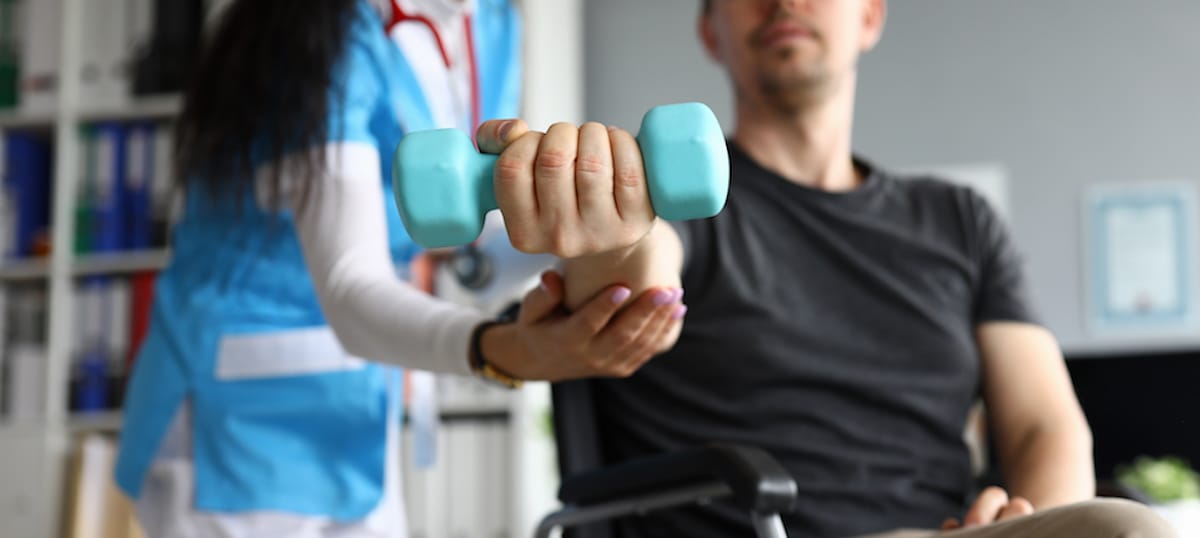Balance Isn’t Just Physical: How the Brain Affects Stability
When people think about balance, they usually picture strong legs, steady feet, or good posture. And while those matter, they’re only part of the equation. Balance also depends on your brain.
From processing what your eyes see, to coordinating muscle movements, to reacting quickly when you stumble—the brain is constantly working behind the scenes to keep you upright. And as we age, changes in cognitive and neurological function can make balance harder than it used to be.
The good news? Physical therapy doesn’t just train your body—it also trains your brain.
The Brain’s Role in Balance
Your ability to stay steady relies on three key systems working together:
- Visual System – Your eyes send information to your brain about where you are in space.
- Vestibular System – The inner ear tells your brain about head position and movement.
- Proprioceptive System – Sensors in your muscles and joints tell the brain how your body is positioned.
The brain integrates all this information and sends signals back to your muscles for quick adjustments. But when that processing slows—or when multiple systems weaken—your stability suffers.
How Aging Affects Brain-Body Balance
As we age, the following brain-related changes may impact balance:
- Slower reaction times – taking longer to correct a trip or misstep
- Cognitive decline – multitasking while walking (like talking or carrying items) becomes more difficult
- Neurological changes – conditions like Parkinson’s or neuropathy disrupt communication between brain and body
- Sensory processing changes – reduced vision, hearing, or proprioception makes it harder for the brain to interpret signals
That’s why some seniors may feel fine standing still, but unsteady when moving through busy or distracting environments.
How Physical Therapy Retrains the Brain for Better Balance
At Synaptic Rehabilitation, we don’t just strengthen muscles—we retrain the brain to process balance cues more effectively. This is called cognitive-motor training.
Dual-Task Training
We challenge patients to walk while counting backwards, naming objects, or carrying an item. This mimics real-life multitasking and improves the brain’s ability to manage both movement and cognition.
Reactive Balance Exercises
Therapists introduce unexpected challenges (like gently nudging the shoulder during standing drills) so the brain learns to respond quickly and automatically.
Vestibular Therapy
For patients with dizziness or inner ear issues, specific head and eye exercises help retrain the brain to interpret balance signals correctly.
Task-Specific Practice
Whether it’s stepping off a curb, navigating crowded spaces, or climbing stairs, PT simulates real-world situations to help the brain and body work together.
Everyday Habits That Support Brain-Body Balance
In addition to therapy, daily lifestyle choices also help keep your brain sharp and your balance steady:
- Stay physically active with low-impact exercise like walking or swimming
- Engage in brain-boosting activities such as puzzles, reading, or learning something new
- Prioritize good sleep—fatigue slows reaction time
- Eat a balanced diet that supports brain health (omega-3s, leafy greens, lean proteins)
- Manage chronic conditions like diabetes or hypertension, which affect circulation and brain function
Related: Why you shouldn’t ignore that “slight” unsteadiness
Rebuilding Confidence Through Therapy
Many seniors stop doing activities they enjoy because of fear of falling. Unfortunately, this avoidance only weakens both the body and brain further. Physical therapy provides a safe, structured way to rebuild confidence—and re-engage with life.
Stay Balanced with Expert Help in Bridgewater, NJ
If you’ve noticed slower reactions, difficulty multitasking while walking, or new unsteadiness, it may be your brain—not just your body—sending signals.
At Synaptic Rehabilitation, our therapists specialize in neurological and balance training for seniors. We’ll help retrain both body and brain so you can move with confidence again.
📍 1200 Route 22 East, Suite 4, Bridgewater, NJ 08807
📞 Call: 908-801-6425
🌐 Request a consultation
Steven Cheung, DPT
Steven is the founder and lead physical therapist at SYNAPTIC Rehabilitation. He earned a BS in Exercise Science Applied Kinesiology from Rutgers University in New Brunswick, NJ and his Doctorate degree from American International College in Springfield, MA. Steven specializes in movement disorders such as Parkinson’s disease and many other neurological disorders. Outside of practicing physical therapy Steven enjoys time with his wife, running, and staying active.

